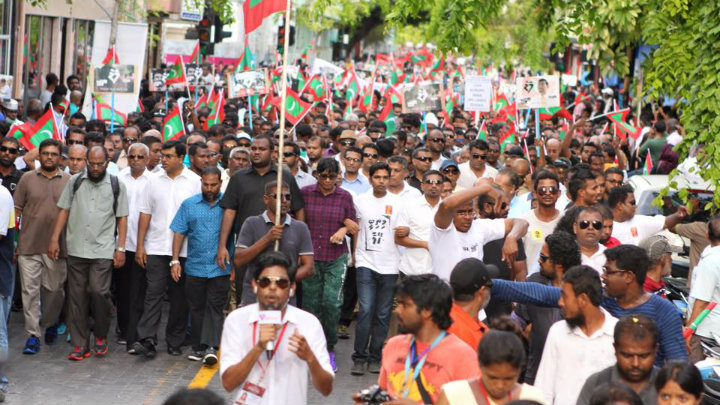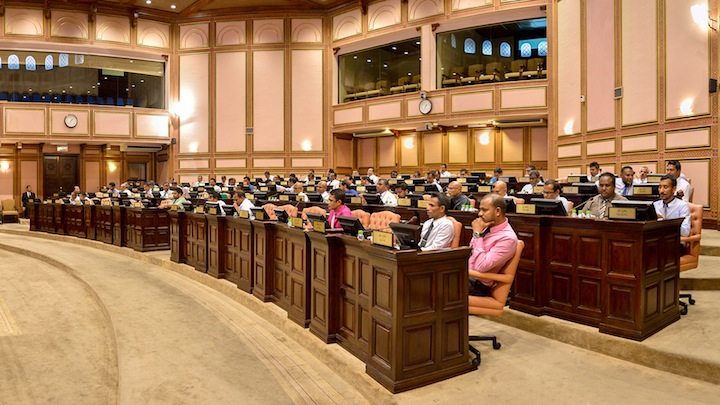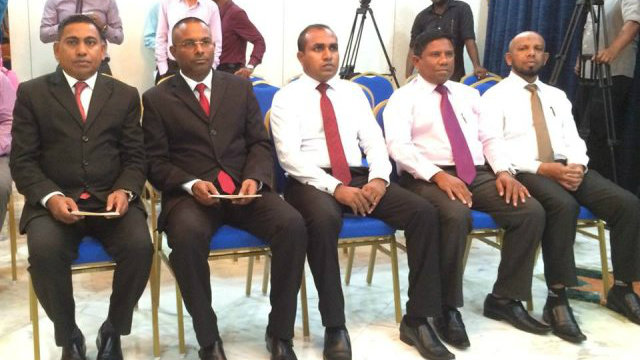The opposition will stage a mass peaceful sit-in on the capital Malé’s thoroughfare Majeedhee Magu on June 12.
The sit-in signals a change in tactics by the Maldivians Against Tyranny coalition. The opposition’s first mass demonstration on February 27 ended abruptly at 6pm, while the second mass demonstration ended in a police crackdown when protesters attempted to take the restricted Republic Square on May 1.
MP of the main opposition Maldivian Democratic Party (MDP), Ibrahim ‘Ibu’ Mohamed Solih, said: “We are once again, taking to the streets to end tyranny. We cannot achieve our goals in one day with just one action. So on June 12, we will raise our voices again.”
Supporters are to gather at 8:30pm at the opposition’s campaign offices or Haruge at the Artificial Beach.
The opposition is protesting over the jailing of ex-president Mohamed Nasheed and ex-defence minister Mohamed Nazim in rushed trials criticised for apparent lack of due process.
The tax authority’s decision to freeze Jumhooree Party leader Gasim Ibrahim’s businesses over a US$90.4 million claim is another key concern. The MP’s Villa Group claims the fine is unlawful and is contesting it at the civil court.
“We will gather at the Haruge, walk to Majeedhee Magu and stage a peaceful sit-in. We will raise our voices. Depending on the results, we will, if we have to, take to the streets again,” Ibu said.
The coalition consists of MDP, the religious conservative Adhaalath Party, members of the JP and defectors from the ruling Progressive Party of the Maldives.
JP members were absent at today’s press conference.
Two JP officials who played a lead role in the coalition, deputy leader Ameen Ibrahim and council member Sobah Rasheed, left the country shortly before terrorism charges were pressed over the May Day protest.
Adhaalath Party president Sheikh Imran Abdulla, also charged with terrorism, is in police custody until the trial ends.
Independent MP Ahmed Mahloof said today: “We must not fall back to the government’s, President Yameen’s intimidation. We will not fall back. The [government] is attempting to jail those who come out with us on charges of terrorism, but I for one, I will remain steadfast.”
Nearly 200 people were arrested at the May Day protest, the largest number of arrests from a single protest in a decade. An additional 15 were arrested on charges of assaulting a police officer.
The police have since obstructed the coalition’s attempts at street protests by limiting protests to the pavements, banning the use of speakers beyond 11pm, and requiring permission for the use of four-wheeled vehicles in protests.





